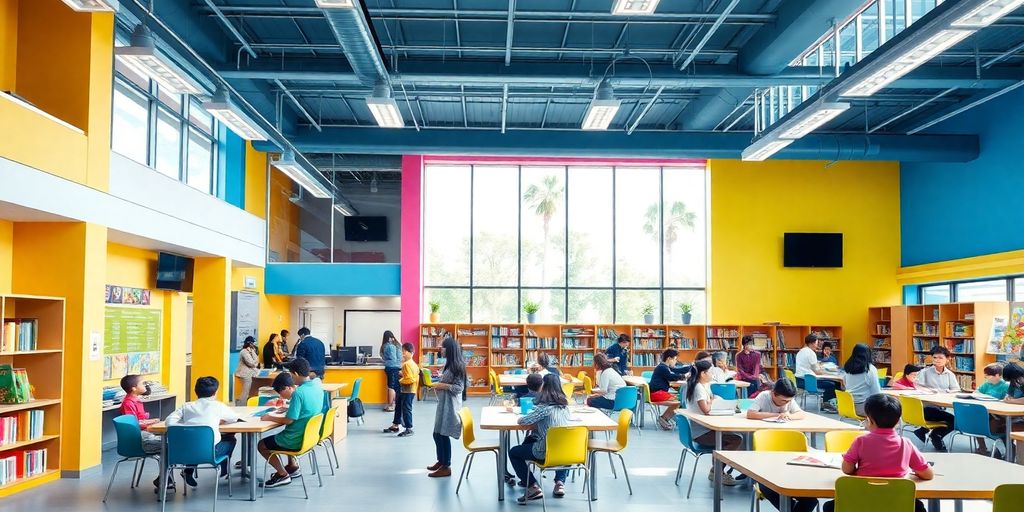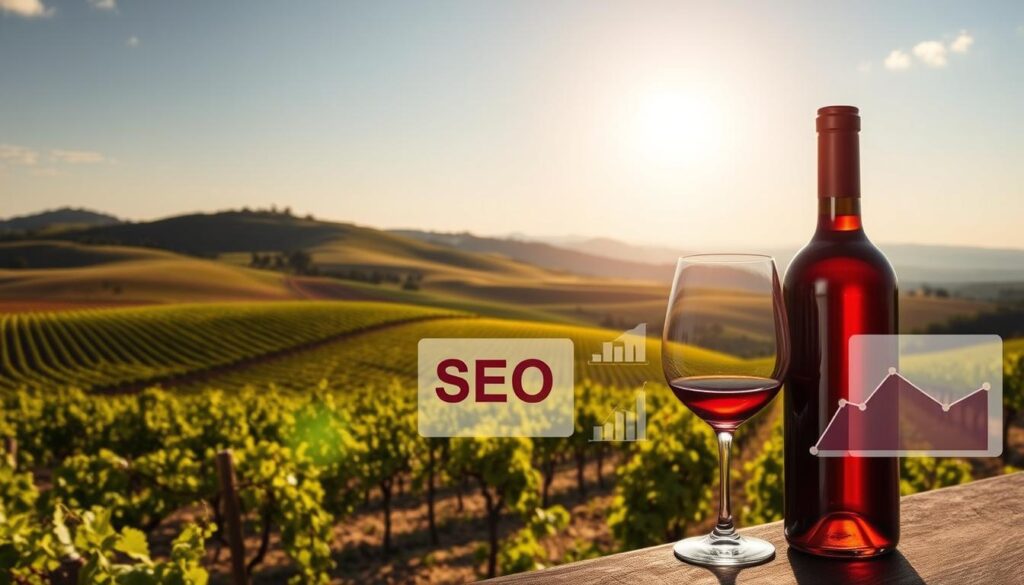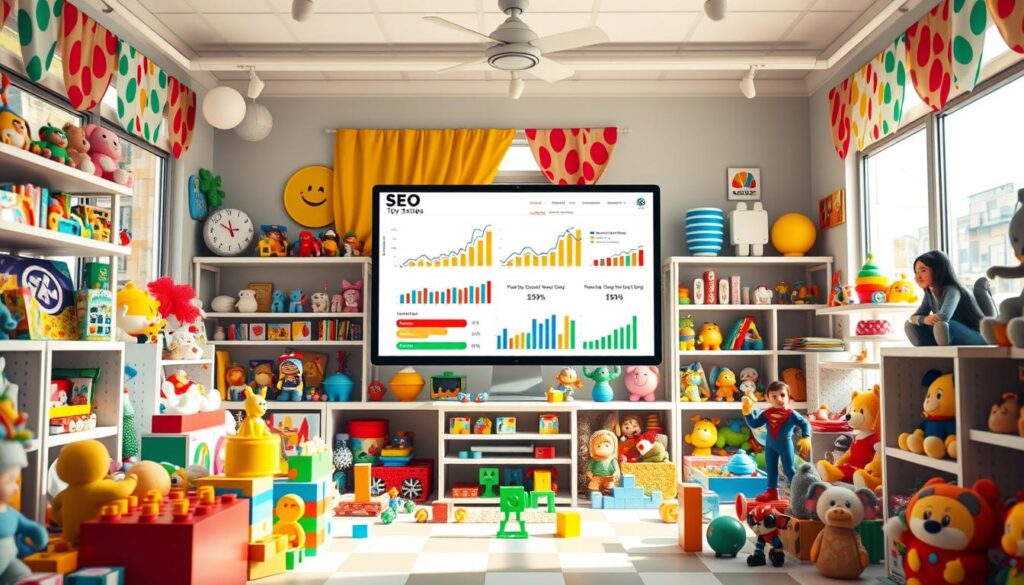Ever wondered why some learning centers pop up first when you search online? That’s all thanks to SEO, or search engine optimization. It’s like having a neon sign pointing to your center in the vast online world. For learning centers, understanding SEO isn’t just a bonus; it’s vital. It ensures that when parents are searching for the best place for their kids, your center doesn’t just get lost in the shuffle. Let’s break down how SEO works for learning centers and why it’s a game changer.
Key Takeaways
- SEO is crucial for making your learning center visible online.
- Understanding the basics of on-page and off-page SEO can boost your center’s online presence.
- Local SEO strategies help target families in your area effectively.
- Creating engaging content like blogs and videos can improve your search rankings.
- Regularly monitoring your SEO performance ensures you stay ahead of the competition.
Understanding SEO for Learning Centers
Defining SEO in Education
SEO, or Search Engine Optimization, is all about improving the visibility of your learning center online. Think of it as making sure your center pops up when someone searches for educational services. It’s not just about stuffing keywords into your content; it’s about creating a user-friendly, informative, and engaging site that search engines recognize as valuable. In the education sector, SEO ensures that potential students and parents find your center easily.
Importance of SEO for Learning Centers
Why does SEO matter for learning centers? Well, the competition is fierce. If you’re not showing up on the first page of search results, you’re basically invisible. By optimizing your website, you can increase your chances of attracting new students. Local SEO, for instance, enhances your online visibility to attract traffic from local searches. This is crucial because most people look for educational services nearby.
Common SEO Misconceptions
There are quite a few myths floating around about SEO. Some folks think it’s a one-time thing, but SEO is ongoing. It’s not just about keywords or links, either. It involves everything from site speed to mobile-friendliness. Another common misconception is that SEO is too technical for the average person to understand. In reality, with a bit of learning and the right tools, anyone can grasp the basics and start improving their site’s SEO.
SEO is not just a marketing tool; it’s a necessity for any learning center looking to thrive in today’s digital world. Without it, you’re missing out on a huge pool of potential students.
Key Components of Effective SEO

Keyword Research Strategies
When it comes to SEO, understanding what words your potential visitors are typing into search engines is a big deal. Keyword research is like the foundation of your SEO strategy. You want to find those golden phrases that people are searching for but aren’t too competitive. Tools like Google’s Keyword Planner can help with this. Start by brainstorming a list of topics related to your learning center. Then, use these tools to discover which keywords have a decent search volume and low competition. Remember, it’s not just about finding any keyword, but finding the right ones that match your audience’s intent.
On-Page SEO Techniques
On-page SEO is all about optimizing the elements on your website to improve its search engine rankings. This includes things like using your keywords naturally in your content, optimizing your title tags and meta descriptions, and ensuring your site is mobile-friendly. Here’s a quick checklist to get started:
- Use keywords in titles and headings
- Write unique meta descriptions for each page
- Optimize images with alt text
- Ensure fast page loading speeds
Don’t forget about the importance of a clean, user-friendly site structure. A well-organized site not only helps search engines crawl your pages but also keeps visitors engaged.
Off-Page SEO Essentials
Off-page SEO is like your website’s reputation management. It’s about building trust and authority through backlinks. Think of backlinks as votes of confidence from other sites. The more quality backlinks you have, the more authoritative your site appears to search engines. But not all backlinks are created equal. Focus on getting links from reputable sites in the education sector. Here’s how you can start:
- Create shareable content that others want to link to.
- Reach out to educational blogs or websites for guest posting opportunities.
- Engage with your community and encourage them to share your content.
"Building a strong backlink profile is about quality, not quantity. A few high-quality links can be more beneficial than hundreds of low-quality ones."
By focusing on these key components, your learning center can improve its online visibility and attract more students. For more tailored strategies, consider SEO services for tutoring centers to boost your reach and authority in the education sector.
Local SEO Strategies for Learning Centers
Optimizing Google My Business
For learning centers, having a robust presence on Google My Business (GMB) is a game-changer. This tool gives your center a spot on the map—literally. Start by claiming your GMB listing if you haven’t already. Fill out every detail, from your operating hours to contact info. Don’t forget to add plenty of high-quality photos; listings with more images get way more clicks. Regularly update your listing to reflect any changes or new offerings, keeping your information fresh and accurate.
Encouraging Customer Reviews
Positive reviews can do wonders for your local search rankings. Encourage parents and students to leave reviews by making it easy for them. You could send a follow-up email with a direct link to your review page or simply ask them in person. Respond to reviews, both good and bad, to show that you value feedback and are committed to improving your services. Remember, authentic feedback not only builds trust but also boosts your visibility in local searches.
Local Keyword Targeting
Targeting local keywords is crucial for attracting nearby families to your learning center. Use keywords that include your city or neighborhood, like "math tutoring in Springfield" or "reading help in Downtown." Incorporate these keywords naturally into your website content, meta descriptions, and even in blog posts. This approach helps search engines understand where you are and what services you offer, making it easier for local clients to find you.
Content Marketing and SEO
Creating Engaging Educational Content
Creating content that captures attention is more than just writing about your topics. It’s about understanding what your audience cares about and delivering that in a way that speaks to them. Think about the questions your students, parents, or educators might have and address those directly. It’s not just about text either—consider incorporating different formats like podcasts or webinars to keep things fresh and engaging.
Utilizing Visual Content
Visuals are a game-changer. They can make complex ideas easier to understand and retain. Infographics, videos, and slide decks can break down complicated subjects into digestible pieces. When using visuals, remember to add alt text to improve accessibility and boost your SEO. This not only helps with search engine rankings but also ensures everyone can access your content.
Blogging for SEO Benefits
Blogs are a fantastic way to keep your site dynamic and relevant. Regularly updated blogs can signal to search engines that your site is active, which can help improve your rankings. Write about topics that are relevant to your audience, incorporating keywords naturally. This isn’t about stuffing your content with keywords but about making sure your blog is a resource for those interested in your field.
Blogging regularly helps maintain an active online presence, which is crucial for staying visible in search engine results. By focusing on topics that matter to your audience, you not only improve your SEO but also build trust and authority in your field.
To see how combining educational content marketing with SEO can achieve your business goals, consider strategies that enhance both visibility and engagement. Utilizing a mix of content types and focusing on what your audience needs can lead to a more engaged and informed community.
Leveraging Social Media for SEO
Building an Online Community
Social media platforms are more than just a place to share updates; they’re a hub for building an online community. For learning centers, engaging with students, parents, and educators on platforms like Facebook and Instagram can create a sense of belonging. It’s not just about posting content; it’s about starting conversations. Respond to comments, ask questions, and share user-generated content. This interaction not only strengthens community ties but also boosts your visibility in social media algorithms.
Sharing Educational Resources
Sharing educational resources on social media can position your learning center as a thought leader in education. Post links to articles, share infographics, or create short educational videos. The goal is to provide value to your audience, encouraging them to interact with your content. This kind of engagement can improve your online presence and drive traffic back to your website, enhancing your School SEO services.
Promoting Events and Programs
Social media is a fantastic tool for promoting events and programs. Whether it’s a new course launch, an open house, or a special event, platforms like Twitter and LinkedIn can help spread the word. Use countdowns, event pages, and live streams to create buzz. Make sure to include clear calls-to-action, directing followers to your website for more details. This not only increases event participation but also boosts your site’s SEO by driving more traffic.
Monitoring and Analyzing SEO Performance
Using SEO Tools for Insights
To get a grip on your learning center’s SEO performance, using the right tools is key. Tools like Google Analytics and SEMrush can give you a peek into how visitors find and interact with your site. These tools help you see which pages are pulling in traffic and which ones are just sitting there collecting dust. It’s like having a map that shows you where to go next.
Tracking Keyword Rankings
Keeping an eye on how your keywords are doing is super important. You can use a rank tracker to see where your learning center stands in search results. This helps you figure out which keywords are working and which ones need a little more love. Think of it as checking your grades to see where you need to improve.
Assessing Website Traffic
Understanding the flow of visitors to your site is crucial. Look at metrics like bounce rate and session duration to see if people are sticking around. If visitors are leaving too quickly, it might be time to tweak your content or layout. Engagement is the name of the game here, and these metrics tell you if you’re winning or losing.
Keeping tabs on your SEO performance isn’t just a one-time thing. It’s an ongoing process that helps you adapt and grow. By regularly checking in, you can make sure your learning center stays relevant and visible in the crowded online space.
For gyms aiming to enhance their SEO, measuring SEO performance through tools like Google Analytics is essential. This allows them to track organic traffic, keyword rankings, and conversion rates, enabling necessary adjustments to boost engagement.
Building a Strong Backlink Profile

Building a robust backlink profile is like crafting a web of trust for your website. Backlinks, or links from other sites to yours, are a big deal for search engines. They see these links as votes of confidence in your content. But not all backlinks are created equal.
Identifying Quality Backlink Opportunities
To build a strong backlink profile, you need to focus on quality over quantity. Start by identifying websites that are relevant to your niche or industry. Look for sites with high domain authority and solid reputations. Here are some ways to find quality backlink opportunities:
- Industry Blogs and Forums: Engage with bloggers and forums in your field. Offer guest posts or valuable comments that can earn you a link back.
- Local News Sites: Reach out to local news outlets. They often cover community events, which can be a great way to get mentioned.
- Educational Directories: Get listed in reputable educational directories. These are often seen as trustworthy sources by search engines.
Maintaining Backlink Health
Keeping your backlinks healthy is just as important as building them. Regularly check the status of your backlinks to ensure they are still active and relevant. Use tools like backlink monitors to track your links. If you find any broken or spammy links, disavow them to prevent any negative impact on your SEO.
"A healthy backlink profile is not just about gaining new links, but also about maintaining the ones you have."
The Role of Guest Blogging
Guest blogging remains a powerful tool in your backlink strategy. By writing articles for other websites, you can include links back to your own site. This not only helps in building backlinks but also boosts your authority in your field. Remember, the key is to provide valuable content that others will want to share.
- Choose the Right Platforms: Target blogs and websites that align with your audience and expertise.
- Create High-Quality Content: Your guest posts should offer real value to readers, encouraging them to visit your site.
- Follow Up: After publishing, engage with the audience through comments and shares to maximize your exposure.
Building a strong backlink profile takes time and effort, but the payoff in terms of improved search engine rankings and increased visibility is well worth it.
Conclusion
So, there you have it. SEO isn’t just some fancy tech term; it’s a real game-changer for learning centers. By getting your center to pop up in search results, you’re not just attracting more students, but you’re also building a solid online reputation. It’s like setting up a digital welcome mat for anyone searching for educational support. Sure, it takes some effort to get it right, but once you do, the benefits are clear. More visibility means more students, and more students mean growth. So, dive into the world of SEO, tweak your strategies, and watch your learning center thrive in this digital age.
Frequently Asked Questions
What is SEO and why is it important for learning centers?
SEO stands for Search Engine Optimization. It’s a way to improve your website so it shows up higher in search results. For learning centers, SEO is important because it helps more people find your services online.
How can learning centers use keywords effectively?
Learning centers can use keywords by adding them to their website content, like in blog posts or descriptions. Keywords should match what people are searching for, like “math tutoring near me.”
What are some common mistakes learning centers make with SEO?
Some common mistakes include using too many keywords, not updating content regularly, and ignoring local SEO. It’s important to keep content fresh and relevant.
How does local SEO benefit learning centers?
Local SEO helps learning centers appear in local search results. This is important because many people search for nearby services. Using local keywords and getting reviews can boost local SEO.
What role does social media play in SEO for learning centers?
Social media can help drive traffic to your website and improve SEO. By sharing content and engaging with the community, learning centers can increase their online visibility.
Why is it important to monitor SEO performance?
Monitoring SEO performance helps you see what’s working and what needs improvement. Using tools to track website traffic and keyword rankings can guide your SEO strategy.






